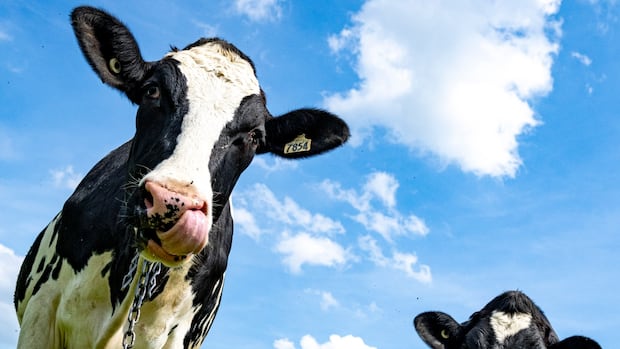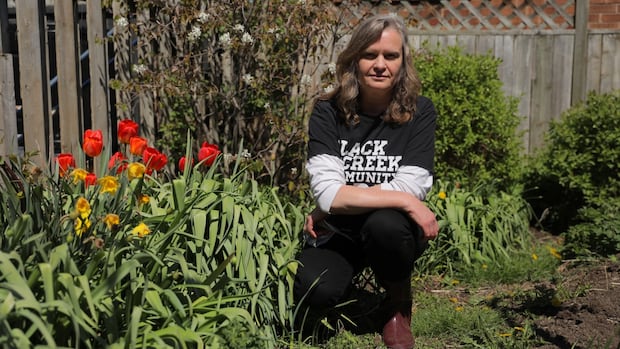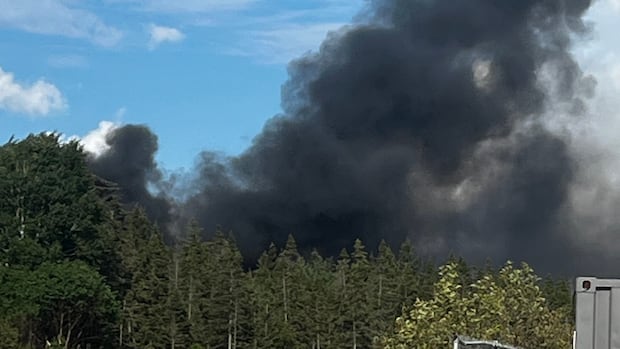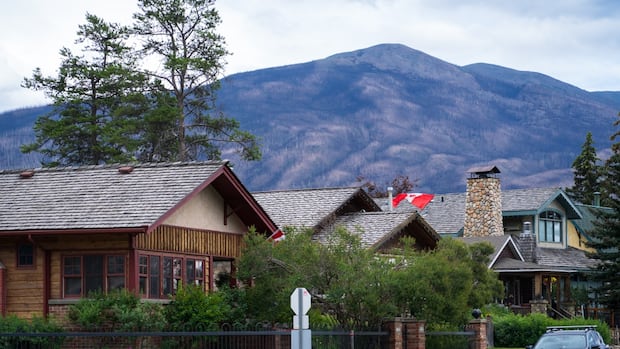WARNING: This story contains graphic details.
The former owner of a remote lodge in northern Manitoba where recent caribou hunts led to allegations of vandalism and animal wastage says he believes images of dead fetuses at the site were circulated with the intent of making First Nations hunters “look bad.”
Police are investigating property damage and Manitoba Conservation officers are looking into potential wastage after a break-in and multiple caribou carcasses were discovered late last month at Nueltin Lake Lodge, about 30 kilometres south of the Manitoba-Nunavut border.
Nick Scigliano, the U.S.-based owner of Nueltin Lake Lodge, said he found the extensive property damage and dozens of dead caribou during an April 11 check of the site, with multiple pregnant cows and fetuses among the carcasses.
Scigliano, the Manitoba Wildlife Federation and the Manitoba Lodges and Outfitters Association have condemned the caribou hunts, and urged the province to intervene.
But an RCMP spokesperson said it’s believed there were nine caribou carcasses found at the site, and that the hunters involved were likely residents of nearby First Nations communities. Multiple hunting parties may have used the site to clean their caribou since it looked abandoned, the RCMP spokesperson previously told CBC.
Garry Gurke, who owned and operated the former Nueltin Lake Fly-In Lodges from 1988 to 2013 with his wife, Lois, says he suspects Scigliano — who bought the lodge in 2020, according to court documents — may not have the same experience with First Nation hunters in the area that he and his wife had.
“I was up there almost 30 years and I never, ever had any problem with the First Nation people breaking into my camp,” Gurke told CBC News on Wednesday. “I used to bring them in and hunt caribou with them, and they’re very, very respectful.”
Scigliano has not responded to CBC’s requests for comment on this story.
Gurke said he and his wife had an informal agreement with First Nations hunters to check in on the lodge while the couple was away during the winter.
In the decades he and his wife operated the lodge, Gurke said he never saw First Nations hunters waste caribou near Nueltin Lake, adding that they’d employed numerous First Nations people in the area, and that the business typically drew about 500 visitors and between $1-2 million in revenue per year.
He believes images of dead caribou fetuses made public by Scigliano and the Manitoba Wildlife Federation on Tuesday were released with the intent to make First Nations hunters “look bad.”
“There’s so much prejudice against the First Nation people,” he said.
He wants to see the site returned to the First Nations communities in the region.
“Fight for your land,” would be his message to those communities, he said. “It should be nothing else but a park [that’s] owned and operated by the First Nations people.”
Wastage ‘not a reflection of our values’: chief
Chris Heald, the Manitoba Wildlife Federation’s senior policy adviser, says the images were released because “bringing it to the forefront gets the discussion going.”
Heald, who went to the lodge with Scigliano and police on April 18, said the images were released before the investigations have concluded because surveillance footage at the site continues to show people trespassing to harvest caribou.
He also refuted the RCMP’s claim only nine caribou were found outside the lodge. He said those nine were the only caribou killed on the day RCMP officers spoke with a group at the site, but were among 50 to 75 carcasses. While some were processed “perfectly,” others were left with a lot of good meat on them, he said.
“Nobody’s questioning the First Nations’ right to harvest caribou,” Heald told CBC News on Thursday. “It’s the wastage that can’t happen anymore.”
Treaty-based hunters are exempt from many of the restrictions that non-Indigenous hunters must obey, including specific hunting hours or seasons and bag limits, according to Manitoba’s hunting guide.
They can, however, be charged for game wastage under Manitoba’s Wildlife Act, a provincial spokesperson said.
Northlands Denesuline First Nation Chief Simon Denechezhe says his community, whose ancestral hunting grounds include what is now the site of Nueltin Lake Lodge, is deeply disturbed by the reports of the caribou carcasses.
“Our people have always honoured the caribou, understanding its importance not only to our way of life, but to the balance of our ecosystem,” he told CBC News in a prepared statement on Wednesday.
“What is reported to have happened is not a reflection of our values or practices.”
The First Nation condemns any possible caribou wastage and wants whoever’s responsible to be held to account, Denechezhe said.
“The caribou is a very sacred animal [that] has sustained our people for thousands of years, and still is.”
Legal action between lodge owner, First Nation
A recent lawsuit also suggests there may be some pre-existing tension between Scigliano and Northlands, with the lodge owner currently involved in legal action against the First Nation regarding a treaty land dispute in the area.
Nueltin Lake Lodge is made up of a network of isolated tourist lodges, outcamps and boat caches that are only accessible via plane, and aims to offer opportunities for tourists to explore northern Manitoba’s wilderness through guided excursions, the 2023 lawsuit filed at the Manitoba Court of King’s Bench says.
The Nueltin tourism network was originally developed in 1977, about a decade before the Gurkes bought it, the lawsuit says.
In 2017, a Manitoba Crown corporation took possession, but not ownership, of the network’s assets due to defaulted payments, according to the statement of claim.
Scigliano purchased the Nueltin tourism network from the Crown corporation for $780,000 in 2020, and the new ownership has spent over $3 million since then in an attempt to revive the business and its connected airport, the suit says.
But the lawsuit claims the Nueltin tourism network owner was not properly consulted and was excluded from treaty land negotiations in the area by Northlands Denesuline First Nation, the federal government, the provincial government, and the Treaty Land Entitlement Committee of Manitoba.
Northlands entered an agreement with the provincial and federal governments, as well as the Treaty Land Entitlement Committee of Manitoba, in 1999, according to a 2023 statement of defence filed by the First Nation in response to the lawsuit.
The agreement was prompted by the fact that the First Nation has not received 94,000 acres (38,000 hectares) of Crown land it was promised when it became a Treaty 10 signatory in 1906, the statement of defence says.
The community chose the lands it wanted converted into treaty lands as part of negotiations in 2004, and Northlands says Scigliano was informed in September 2020 that some of the sites it selected were within or near the Nueltin tourism network, the document says.
The lands selected by Northlands have yet to officially be transferred to the First Nation, according to its statement of defence. Scigliano’s lawsuit asks the court to prevent the transfer from happening before he can be included in the treaty land entitlement process.
The First Nation, and the other defendants, have denied that they were obligated to include Scigliano in Northlands’ treaty land entitlement process, according to their respective statements of defence.
Northlands claims “proper consultation had already occurred at the proper point in time,” when the Gurkes owned the Nueltin tourism network.
Scigliano “failed and/or refused” to contact Manitoba’s director of Indigenous and Northern Relations, as instructed by the province, and proceeded to purchase the Nueltin tourism network the following month, Northlands alleges in its defence.
Northlands also claims Scigliano is responsible for any losses he suffered after purchasing the tourism network, and asked for Scigliano’s suit to be dismissed, according to the document.
In a cross-claim against the province, Northlands alleges the province failed to cancel, or not renew, any permits, licences or leases for the Nueltin tourism network once the business stopped operating in 2013. That was a breach of the province’s obligations under the treaty land entitlement agreement, Northlands claims.
None of the allegations have been proven in court.







